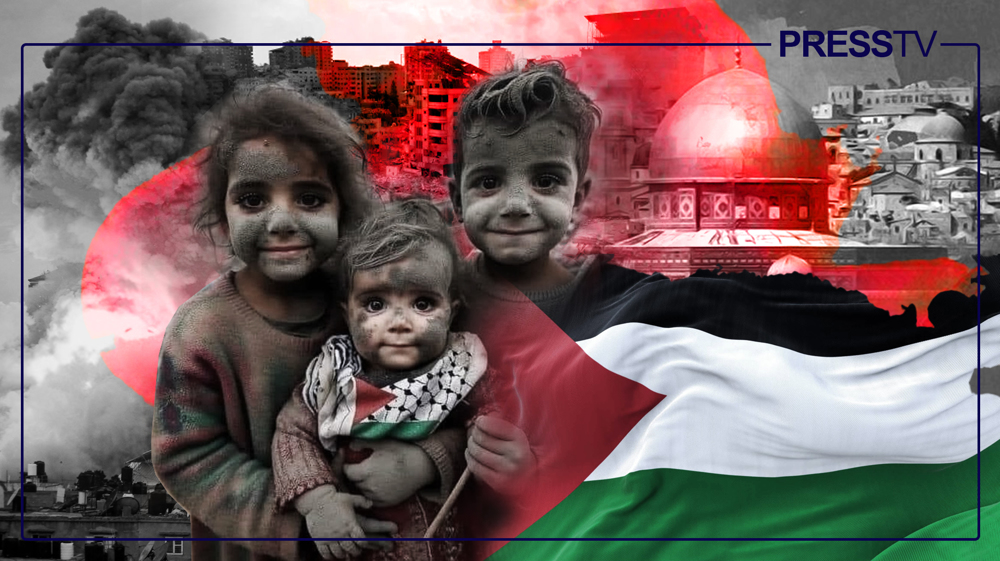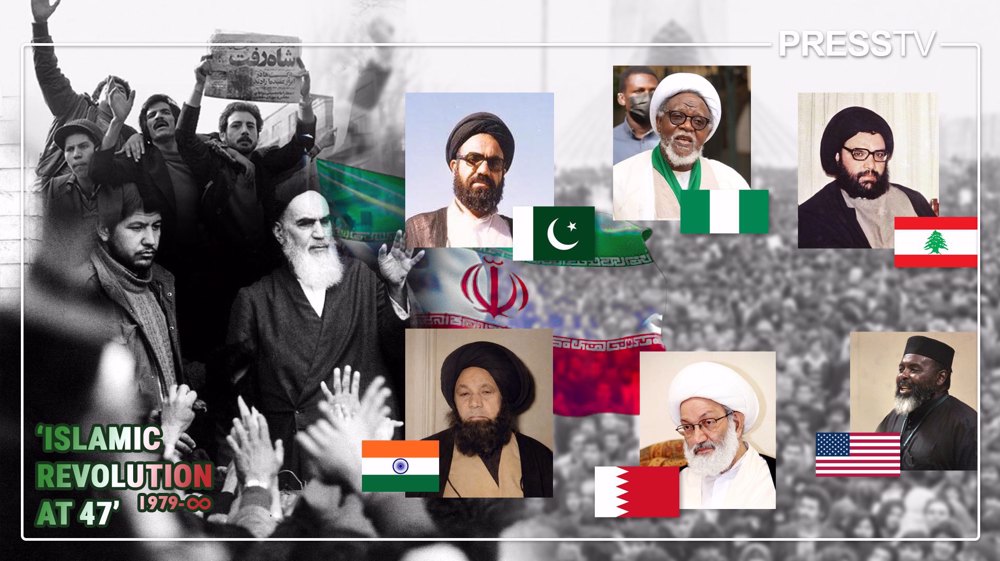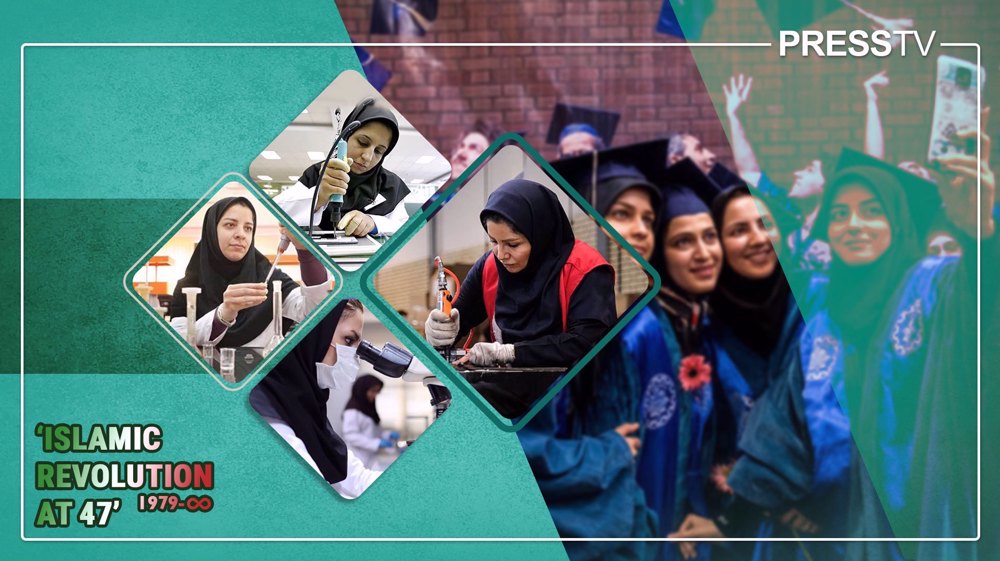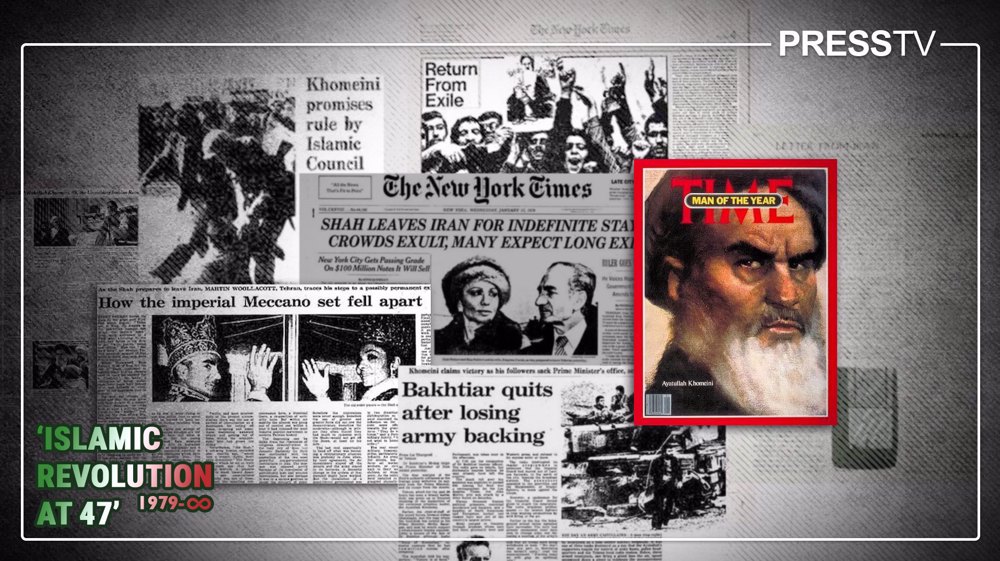‘We are not numbers’: Palestinians in Gaza share poignant stories of loss and grief
By Maryam Qarehgozlou
“I am strong, but I’m not the same anymore... These days are the hardest in my life. I’ve been destroyed mentally and emotionally,” Somoud Faiq Abu Al-Qumsan wrote on her Instagram page before she was tragically killed in an Israeli strike on her home in Gaza on October 22.
“All the plans I made have vanished, and everything I once beautifully envisioned in my mind has turned to ashes,” she hastened to add in what were the final words of the 19-year-old.
Like other Gazans, she felt vulnerable and anticipated death “at any moment” and found no way to save herself or her loved ones amid the occupying regime’s no-holds-barred aggression on the territory.
Qumsan, studying graphic design at Al-Quds Open University, was an avid reader. Her heart belonged to the world of books, Untold Palestine, an Instagram account telling the story of Palestinians killed by the Israeli regime, quoted her friend Cyla Muhana as saying.
“Her father and brother were martyrs. She lost her father when she was young and didn’t see him, but she always talked about him, remembered him, and mourned him,” Muhana said about her slain friend.
According to Muhana, Qumsan turned 19 recently, after Israel launched its latest genocidal war on Gaza, but she hesitated in wishing her friend a happy birthday amid the bloodshed in the besieged territory.
“Samoud turned 19 during this war. I felt ashamed to greet her on her birthday and say, ‘Happy Birthday!’ while we’re still in the war, possibly facing death at any moment,” Muhana wrote.
“She sent me a voice recording days before her martyrdom, saying: ‘I sent you my pictures so that if I become a martyr, you can see them and pray for me.’”
Qumsan is one of the more than 18,000 Palestinians whose lives were tragically cut short by the murderous regime in Tel Aviv with an aerial and ground blitz that started on October 7.
Israel has been relentlessly and indiscriminately bombing Gaza’s 2.3 million people by air and land, pounding everything from hospitals, schools, and universities to refugee camps.
An investigation by the Washington Post revealed on Saturday that Israel rained over 22,000 US-produced bombs on Gaza in just six weeks since the start of the war, which roughly means one US-supplied bomb is dropped on Gaza for every 100 people living there.
Sharing untold, unheard stories
Amid the genocide, the dehumanization of Palestinians has been the defining feature of the Western media coverage of the war that has spawned the worst humanitarian crisis in the territory.
To counter this dehumanization, grassroots initiatives seek to bring out human stories of the war and the toll it is taking on ordinary Palestinians in the Gaza Strip.
‘Untold Palestine’ is one such project that provides a “unique independent” platform that tells digital stories about Palestinian lives not told by mainstream media, according to its bio on social media sites.
“With the passing of every martyr, our responsibility grows to document their stories and lives, ensuring they are not reduced to mere numbers. The magnitude of the crimes affects every family, from the elderly to children, women, and men,” ‘Untold Palestine’ wrote in a post on X, formerly Twitter.
‘We Are Not Numbers’, founded in 2015, is another widely popular project that seeks to give Palestinians a platform to tell their untold and unheard stories directly to the world.
Ahmed Alnaouq, devastated by the loss of his older brother, 23-year-old Ayman, in an Israeli airstrike in Gaza in 2014, was encouraged by an American friend, Pam Bailey, to write his story to channel his grief into something worthwhile.
Together, they founded ‘We Are Not Numbers’, a youth-led Palestinian project in the Gaza Strip.
At first, it served as a platform to commemorate the dead but later became a space for Palestinians to share their stories, their daily personal struggles and triumphs, living under a political system that has stripped them of their basic rights and an economy blockaded by the illegal occupation.
“When the world talks about Palestinians living under occupation and in refugee camps, it is usually in terms of politics and numbers – specifically, how many killed, injured, homeless and/or dependent on aid,” ‘We Are Not Numbers’ writes on its website.
“What numbers don’t convey are the daily personal struggles and triumphs, the tears and the laughter, and the aspirations that are so universal that if it weren’t for the context, they would immediately resonate with virtually everyone,” it adds.
How stories change lives
Since it was launched, more than 350 people have contributed to it and have shared more than 1,100 stories. Over 150 mentors around the world give the contributors advice on their writings.
“This project changed my life because, for the first time, I thought that some people can care about us,” Alnaouq was quoted as saying by the New York Times.
Alnaouq’s father, Nasri, younger brother, Mahmoud, and sister Walaa were also killed on October 20 when a bomb flattened their father’s house, killing 21 members of their family, including a niece who died of her injuries later.
His sister, Walaa, was an engineer. According to Alnaouq, she had finally gotten a job after years of trying. His brother Mahmoud had been preparing to leave for Australia to study political science.
“After losing my family, I did not stop believing in what I believe in, I don’t want other people to feel what I am feeling,” he said, recounting the tragic incident.
Since the Israeli war on Gaza began on October 7, a broader trend of Palestinians speaking to the world directly and telling their own stories also started, amid the Western media blackout.
Some content creators’ good command of English, use of translation tools as well as the rise of social media have made it easier to hear a Palestinian perspective on Israel’s occupation.
Despite the censorship of pro-Palestine voices, a growing number of Instagram accounts, Facebook pages, accounts on X, etc. with either small or big follower counts, run by the youth from Gaza and occupied West Bank or the diaspora, are now documenting the stories and dreams of those killed by the apartheid regime or struggling to survive amid the relentless bombings.
“Numbers are numbing, they are impersonal. Every day I hear how the death toll is rising in Gaza and I feel overwhelmed, but the numbers do not tell about the sufferings of people in Gaza,” Sara Mohammadi, a Tehran-based journalist who has covered West Asia since 2015, told the Press TV website.
“These numbers do not trigger empathy or action, however, when I read the personal stories about Palestinians who have perished in this catastrophic war I really feel the pain they are going through and I feel I must do something,” she added.
VIDEO | Protests in Italy over US, Israel operatives as winter olympics get under way
Epstein files fallout: Norwegian police launch corruption probe into veteran diplomat
VIDEO | Iranian embassy in China celebrates Islamic Revolution anniversary
VIDEO | UK police arrest Palestinian journalist, Press TV contributor
VIDEO | Fighting British state
UN chief condemns new Israeli annexation project in occupied West Bank
Araghchi briefs foreign ministers of Turkey, Egypt and S. Arabia on US talks
JD Vance’s Caucasus trip deepens concerns over sovereignty, security and US meddling










 This makes it easy to access the Press TV website
This makes it easy to access the Press TV website